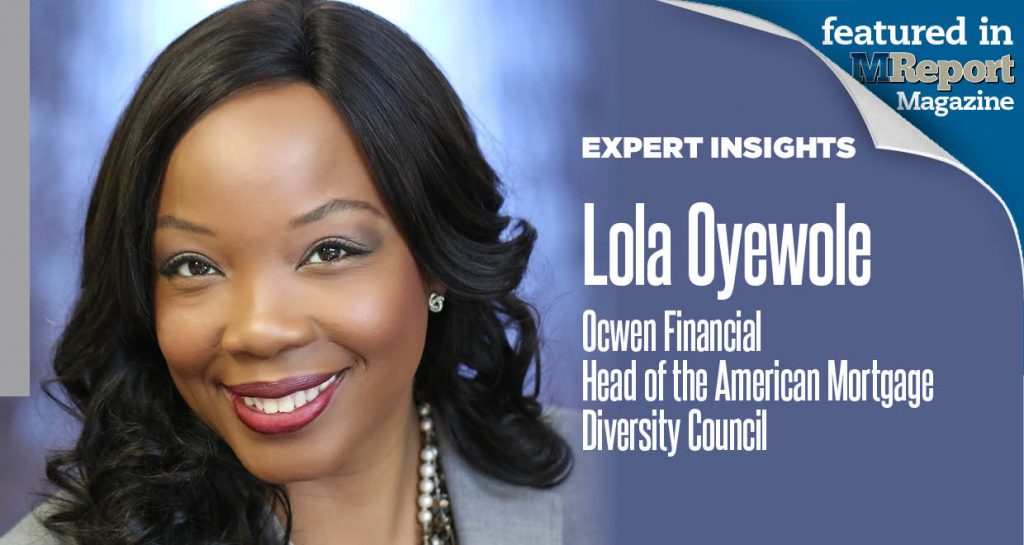
This feature originally appeared in the May issue of MReport.
The head of the American Mortgage Diversity Council, Lola Oyewole of Ocwen Financial, speaks about the biggest challenges facing inclusion in the workforce, how the conversations in this area are changing, and what she is looking forward to in her new role.
What are your thoughts about leading AMDC as the Chair? What work have you done to promote diversity and inclusion issues?
I am extremely honored to have been selected as the new Chair for AMDC. I see this role as a privilege and an opportunity to help advance the diversity and inclusion agenda in the mortgage industry by providing more insight and transparency into what companies can do to enhance workplace diversity
How is the work you are doing at Ocwen impacting diversity and inclusion in the workforce?
I lead the Human Resource Strategy for U.S. operations. I am also responsible for setting and executing the diversity and inclusion roadmap for Ocwen globally. The work we have done over the past several years has built the foundation for diversity and inclusion across the company. We established four pillars to anchor our diversity and inclusion strategy on and set up an Executive Diversity and Inclusion Council that meets on a quarterly basis. In 2017, we developed a three-year strategic roadmap for diversity and inclusion that includes actions to enhance Ocwen’s ability to recruit, retain, and develop diverse talent globally. The strategies and actions on our roadmap have led to an increase in female and minority representation at the levels of director and above year-over-year since our launch. We also established metrics to track improvement so that we can hold ourselves accountable. These metrics are reviewed through an executive dashboard on a regular cadence.
What are the biggest challenges to implementing diversity and inclusion in the workforce?
One of the biggest challenges is the notion of unconscious bias. This refers to social stereotypes about certain groups of people that other individuals from outside of their sphere of awareness. When it is not addressed, it can and does result in a narrow pool of candidates being identified for recruitment or even being hired or promoted. It also limits creativity and can affect collaboration between employees, preventing innovation and productivity. The good news is that companies can work to address unconscious bias. Some research by the Lattice Group maps out steps that companies can adopt to reduce unconscious bias in the workplace, including the provision of awareness training; revising the framework for who gets hired, recognized, or promoted; introducing data into decision-making; and encouraging all employees to speak about biases.
How has the conversation around diversity and inclusion changed since you entered the industry?
The industry is becoming more diverse and companies are taking a closer look at ensuring that their talent is representative of their customers by focusing on attracting and retaining diverse talent. The conversation has become more prevalent and more focused on inclusive practices.

 theMReport.com Your trusted source for mortgage banking news
theMReport.com Your trusted source for mortgage banking news








